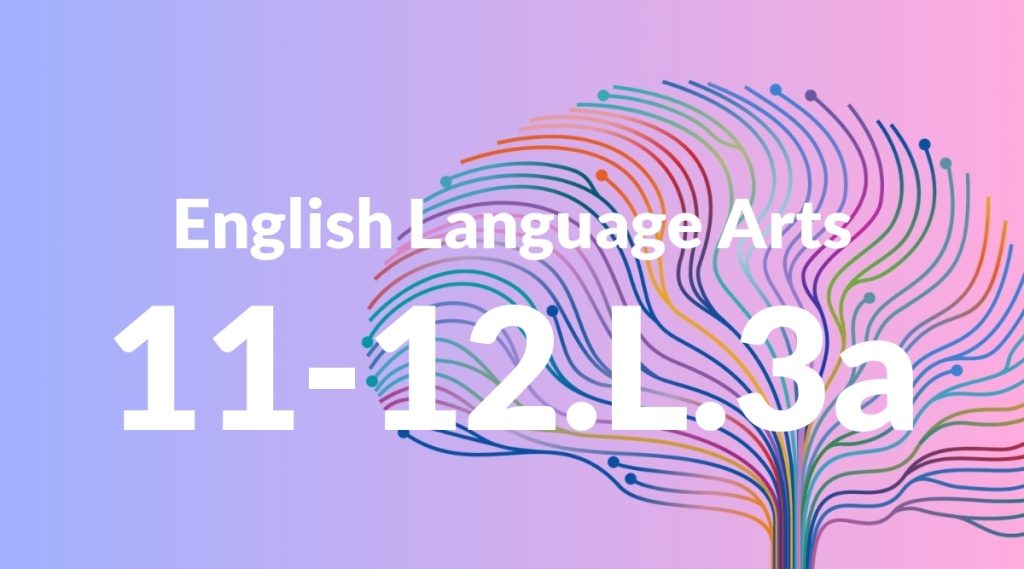Standard: 11-12.L.3a – Vary syntax for effect, consulting references (e.g., Tufte’s Artful Sentences) for guidance as needed; apply an understanding of syntax to the study of complex texts when reading.
Grade level: Grade 11-12
Subject: English Language Arts
Domain: Language
Teacher Overview
This standard focuses on the ability to vary syntax for effect and understand its role in complex texts. Mastery of this standard will enable students to appreciate the nuances of language and improve their own writing by making it more dynamic and engaging. Students should be familiar with basic sentence structures and types of sentences, as well as the role of punctuation in shaping meaning. This foundational knowledge will enable them to understand and apply more advanced concepts of syntax.
By mastering this standard, students will be able to analyze and apply complex syntax in their reading and writing. This skill will enhance their ability to understand and produce sophisticated texts, preparing them for higher-level academic work and effective communication.
Common Misconception 1
A common misconception is that varying syntax simply means changing sentence length. However, syntax variation involves a range of techniques, including altering sentence structures, using different types of clauses, and changing word order. Understanding these techniques is crucial for effectively varying syntax.
Intervention 1
To address this misconception, provide students with examples and exercises that focus on different aspects of syntax variation beyond sentence length. Encourage them to experiment with various sentence structures and observe the effects.
Common Misconception 2
Another misconception is that syntax variation is only relevant in creative writing. In reality, varying syntax is important in all types of writing, including analytical and expository texts. It enhances clarity, emphasis, and reader engagement.
Intervention 2
To remediate this misconception, present examples of syntax variation in analytical and expository writing. Discuss how these variations contribute to the effectiveness of the writing and provide opportunities for students to practice in different contexts.
Prerequisite Knowledge
Students should have a foundational understanding of basic sentence structures, types of sentences (simple, compound, complex), and the role of punctuation in shaping meaning.
Subsequent Knowledge
After mastering this standard, students will be able to critically analyze complex texts with an understanding of how syntax contributes to meaning and style. They will also be able to apply these insights to their own writing, enhancing clarity and impact.
Instructional Activities
- Analyze the syntax of a famous speech to understand its persuasive effect.
- Rewrite a paragraph from a novel to change its tone or emphasis.
- Use syntax variation to create a more engaging personal narrative.
- Compare the syntax of different authors to understand their unique styles.
- Create a syntax variation exercise where students rewrite sentences with different structures.




